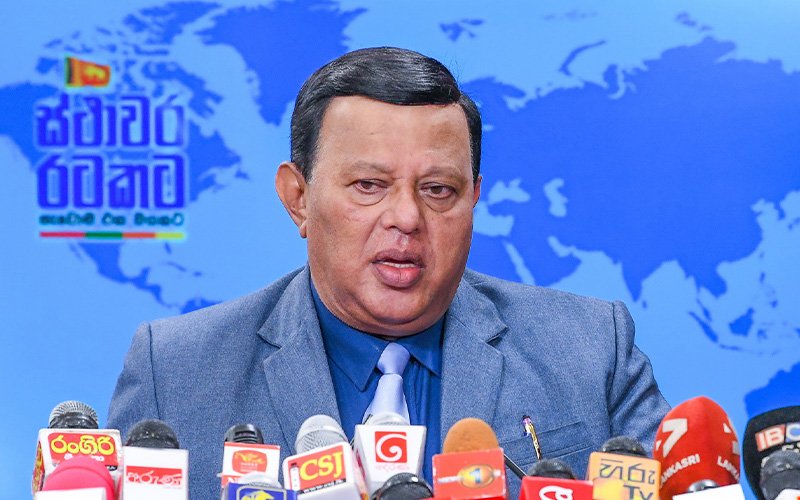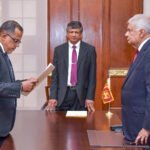
Educational Reform Aims for Significant Growth in Sector

State Minister of Education Arvind Kumar, emphasized the potential for significant development in the education sector through on-going reforms.
He urged all teachers to grasp the importance of their role and act conscientiously, highlighting their crucial responsibility in shaping the future generation of the country.
The state minister made these remarks while addressing the press briefing titled “Collective Path to Stable Country” held at the Presidential Media Centre (PMC) today (12).
State Minister Arvind Kumar further explained;
We anticipate significant advancements in the education sector through our current reform initiatives. Over 500 language teachers proficient in Korean, German, French, Hindi, Chinese, and Japanese have been recruited and deployed to schools, particularly targeting employment opportunities.
Furthermore, plans are underway to elevate 19 National Colleges of Education across the country into universities, aiming to produce teachers graduating from these institutions within four years. This expansion is projected to increase college enrolment from 5,000 to 7,500 students, resulting in an annual output of 7,500 qualified teachers. Additionally, efforts are underway to enhance school facilities for children with special needs, including the appointment of trained teachers dedicated to their support.
Plans are also in place to expand the number of Zonal Education Offices to 120. Additionally, pending teacher appointments, as well as appointments for third-grade principle positions and education administrative service officers, are being processed. President Ranil Wickremesinghe has allocated necessary financial resources to the Ministry of Education for these reforms in the education sector, underscoring his personal commitment to these initiatives.
Meanwhile, there have been reports of teachers falling sick in recent days. Teaching is a profession that shapes the future of our country, carrying a profound responsibility. I urge all teachers to act conscientiously. The Ministry of Education has reiterated that collecting money in schools is illegal, and calls for parental support in adhering to this guideline.
However, it has become evident that prolonged strikes will severely impact trade unions. Despite their differing narratives, it is clear that all their measures have ultimately failed.
Additionally, a dispute has arisen concerning the wages of estate workers. Employers have taken legal action against the increase of their daily wages to Rs. 1700.00. Similar legal challenges were previously unsuccessful when wage increases were proposed. Trade unions are confident that the court will rule in favour of this wage increase.
Since President Ranil Wickremesinghe took office, government employee salaries have increased by Rs.10, 000, and there have been corresponding increases in the private sector. This rise in living costs is a global phenomenon exacerbated by the economic fallout from the COVID-19 pandemic, affecting countries worldwide, including ours.
However, the situation has markedly improved over the past two years. With the economy stabilizing, today the Sri Lankan rupee has strengthened compared to the US dollar, bringing greater happiness to our citizens than before.
In my view, it is crucial for the people to assess the situation thoughtfully and consider allowing President Ranil Wickremesinghe, who steered the country away from crisis, the opportunity to continue his programs in the upcoming presidential election.



